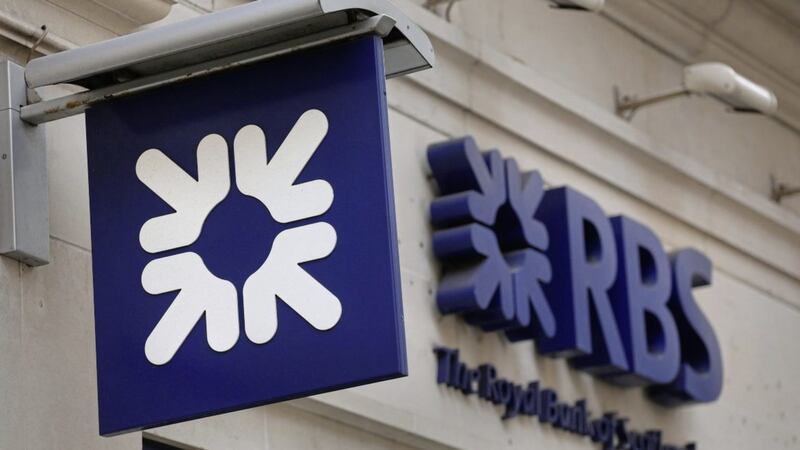ROYAL Bank of Scotland, parent firm of Ulster Bank, will have to raise around £2 billion to boost its financial strength after failing the Bank of England's annual health check of the sector.
The lender, which is 73 per cent owned by the taxpayer, emerged as the worst performer in the stress test and has drawn up a plan overnight to bolster its resilience in case of a financial crisis.
Barclays and Asian-focused player Standard Chartered also struggled in the test, but the Bank said their existing plans mean they do not have to take further action.
The Bank's most severe annual stress test so far gauged the resilience of seven UK lending giants - RBS, Lloyds Banking Group, HSBC, Barclays, Santander, Standard Chartered and Nationwide Building Society - against a global economic crisis and crashing house prices.
The Bank's Financial Policy Committee said in light of the findings and action taken by RBS, "the banking system is in aggregate capitalised to support the real economy in a severe, broad and synchronised stress scenario".
RBS said it plans to boost its balance sheet by taking actions including further asset sales and cost cutting, although it is not set to tap markets for extra finance.
Eight years on from the financial crisis, effectively the taxpayer-owned RBS is still short of the money it needs to survive another one.
But Ewen Stevenson, chief financial officer of RBS, said: "We are committed to creating a stronger, simpler and safer bank for our customers and shareholders.
"We have taken further important steps in 2016 to enhance our capital strength, but we recognise that we have more to do to restore the bank's stress resilience including resolving outstanding legacy issues."
RBS came close to failing last year, while a stress test by the European Banking Authority in the summer revealed that the lender would be the third worst hit in a new economic crisis.
Results of the Bank's annual test came as it also published its Financial Stability Report warning the outlook "remains challenging" for the UK and is dependent on an orderly exit from the European Union.
The Bank said as a result of the June 23 vote, the likelihood of risks to financial stability "remains elevated".
Its stress test of the banking system - its third so far - saw each lender assessed on whether they would be able to withstand a synchronised UK and global crisis on a greater scale than in 2008.
The five-year doomsday scenario included oil prices slumping to $20 a barrel, house prices tanking by 31 per cent, rising UK unemployment and a 4.3 per cent drop in Britain's economic output, as well as a worldwide recession.
The Bank also gave detail on its 2017 test of the banking sector, which will see it introduce a second test and will cover a seven-year period, looking at "severe headwinds" that could put profits under pressure.
Britain's exit from the EU could also see banks forced to adapt as they face lower interest rates for longer and uncertainty over Brexit negotiations.
The Bank said: "Changes to business models as the UK withdraws from the EU could have implications for resilience."
RBS shares fell 2 per cent after the stress test results, while Standard Chartered also slipped into the red.
But Barclays shares held firm despite balance sheet weaknesses being revealed, with HSBC and Lloyds also edging higher in the FTSE 100 Index as they were given a clean bill of health.
Bank governor Mark Carney said that since the plans put in place by RBS, Barclays and Standard Chartered to address weaknesses, UK banks would be able to "withstand what is a very severe shock".
"Withstand means being able to meet demand for borrowing ... in that scenario," he added.








